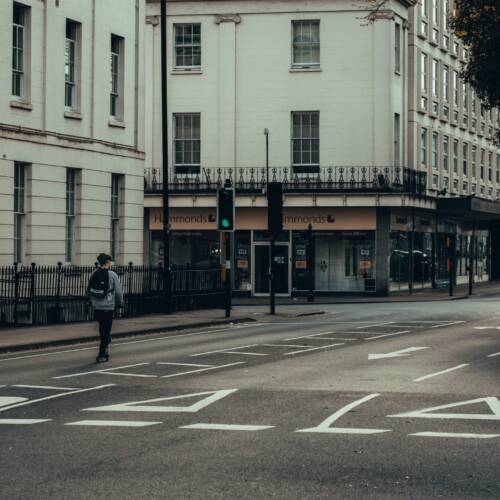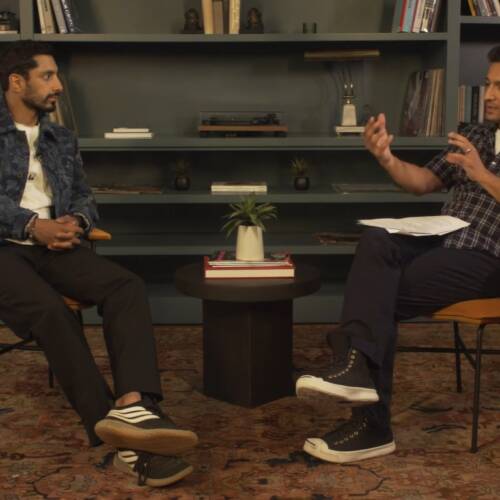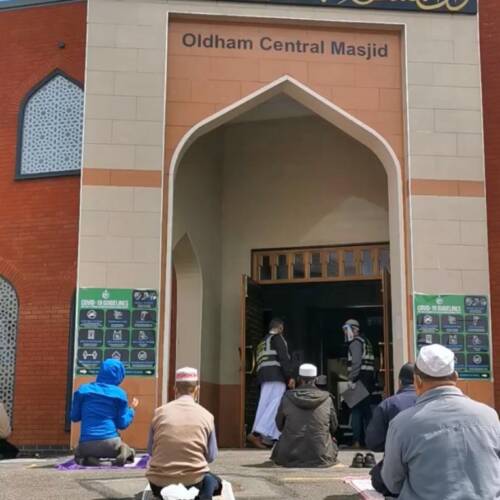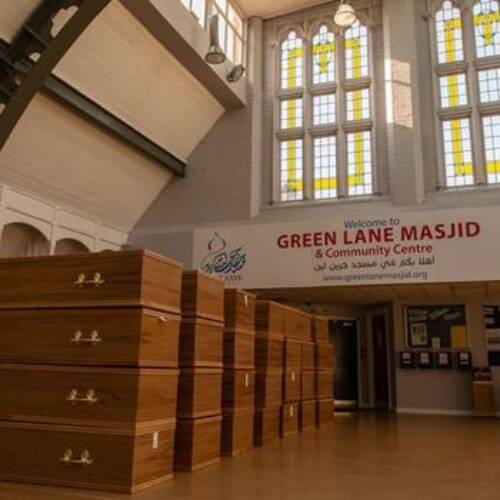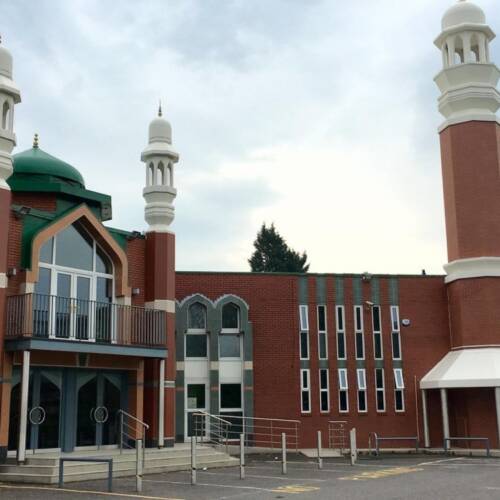
Actor Riz Ahmed Speaks About Lockdown, Britishness and Typecasting
16 Oct 2020Riz Ahmed is a name most of us will have heard at some point. From the brilliant and satirical film Four Lions to his part in Star Wars’ Rogue One, and with a prolific music career, Ahmed has been a rising and visible star.
Through it all, he has not shied away from political activism. Ahmed is loud about his activism and vocal about the issues that impact British Muslims, as highlighted in his involvement in The Road to Guantanamo.
Ahmed sat down with the editor-at-lage of Esquire Magazine, Sanjiv Bhattacharya during which he discussed topics ranging from his career to feelings about typecasting and his views on Britishness.
“My Lockdown Involved a Lot of Reflection and A Lot of Zoom”
Ahmed’s first question was about his second studio music album, The Long Goodbye whose release in March coincided with the lockdown, forcing the cancellation or postponement of many release events.
For something of a self-confessed workaholic who tends to have a lot on his plate, the forced pause was a challenge.
“For a lot of us, we’ve just been on a treadmill incessantly for such a long time, the pace of life just seems to get faster and faster. So being forced to kind of sit still…forced me to face certain things,” Ahmed says about the lockdown.
He admits that especially at the beginning, he felt a sense of guilt when he was not being productive. It struck him that this sense of guilt is something we are all taught in this capitalist system, that “you’re only worth anything if you’re producing something rather than recognising our inherent self-worth”.
He called it “toxic productivity” and admitted that it was difficult to just sit with himself in the lockdown “purgatory”. “We’re not individuals; we’re all a link in a chain,” he adds.
He believes that what we experienced during this time should be a lesson for the future. A realisation that things need to change.
“It should be a wake-up call about how we run our society, what we value. Do we value getting the economy going, and paying people to go to restaurants when we know it can cause another spike? Or do we value human life?”
For him, the period also gave him a better understanding of his character in 2019’s The Sound of Metal where he played a musician who loses his hearing and has to confront his life decisions.
Overall though, despite the bleakness many feel, he believes there is hope for the future.
“The Definition of What Britain and Britishness Is Needs Looking at”
As is usually the case with Riz Ahmed, the conversation inevitably turns to politics and, more specifically, the concept of Britishness. Indeed, the attitude he feels Britain has towards a brown-skinned Muslim man like him is the bedrock of his The Long Goodbye album.
“Suddenly the locks have been changed on you and you’ve been told to pack your bags and get out,” he says, comparing his emotions resulting from such experiences to a bad breakup.
Ultimately, however, Ahmed still loves Britain and being British. However, he feels that the definition of what Britain and Britishness needs to be examined.
Ahmed especially denounced the idealised image of Britain pushed by the far-right.
“It [the NHS] doesn’t look like some of our right-wing press and politician’s ideas of what Britain should look like, yet it’s the backbone of what’s kept Britain going.”
He adds our idea of Britishness is malleable, that it can be Shakespeare; it can be nostalgia; it can be an idea that Britain is mono-racial; or it can be as expansive as the reality that built Britain which spans the globe.
“For me, to say ‘I love Britain’ is akin to saying ‘I love this planet’. I think it’s a globalist position, not a nationalist position.”
He feels that representation of minorities is part of this process. For some time, people were just after representation and visibility. But this resulted in roles where he was typecast into boxes.
“You’re either the clown or the savage, you’re either the guy who couldn’t get the girl, the tech guy, or the terrorist, so I’m trying to move us into a space where we can just be a man.”
He feels that this is slowly changing though. That people are realising that it is not OK to be just represented in a tokenistic way but to be represented in their full, unapologetic selves. For artists like him, this also requires a self-examination of the roles he took and realising that he is not stretching culture but trying to fit himself into pre-made moulds.
As an example, Ahmed brings up Michaela Coel’s recent series, I May Destroy You.
“It blew my mind,” Ahmed says, describing the series as being “unapologetically her” and that because of the personal nature of the story, its complexity goes far beyond representation.
“It’s kind of ground-breaking as well to see Black British life portrayed with that nuance on TV.”
Ahmed ends the interview on an optimistic note, describing our current period as both “terrifying” and “exciting”.
“There is something quite spurring about shit falling apart, and clarifying your own priorities, crystallising your own views. A healthy place to be is using your art to work out your identity, and using your identity to work out your art.”






